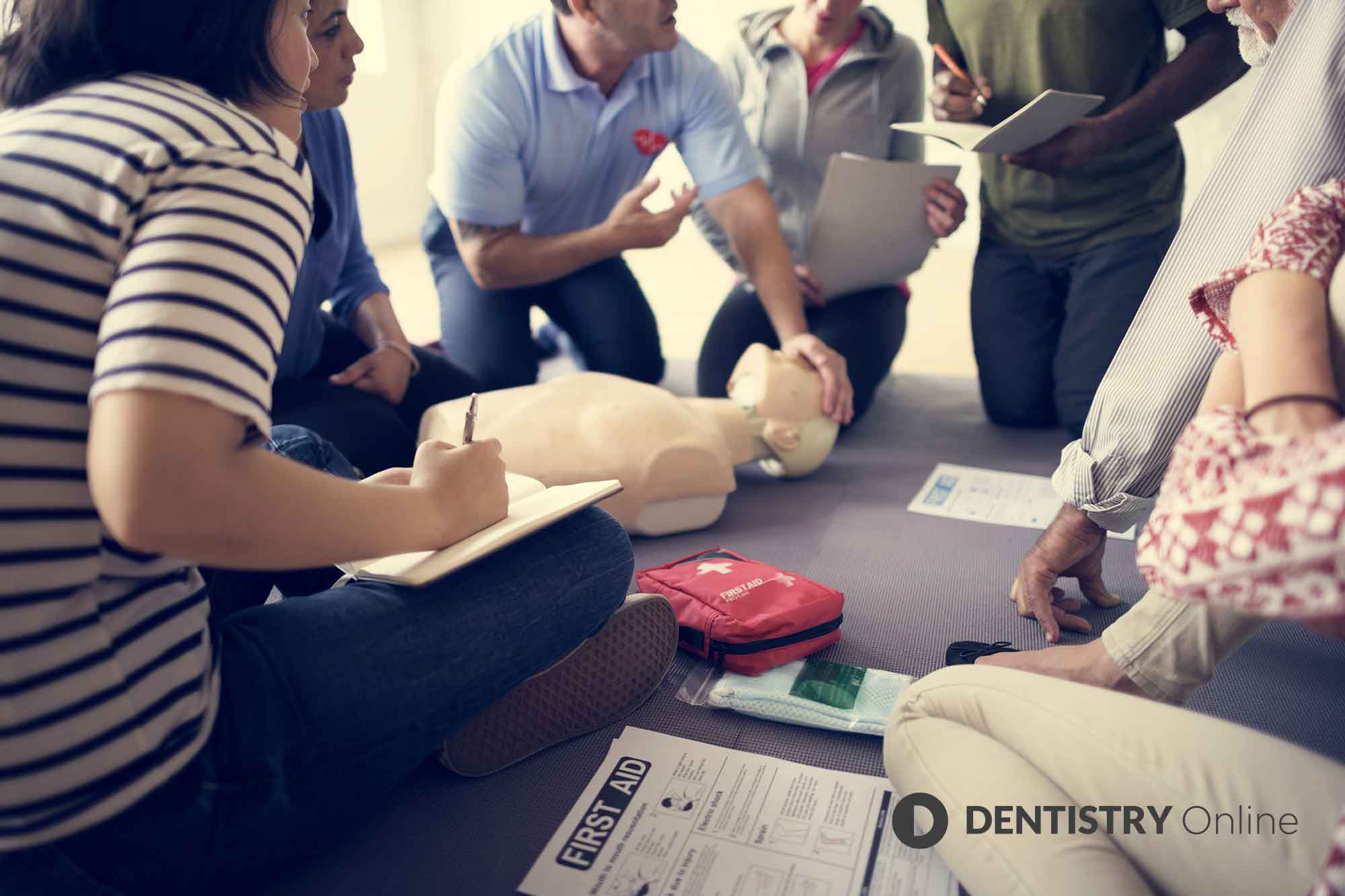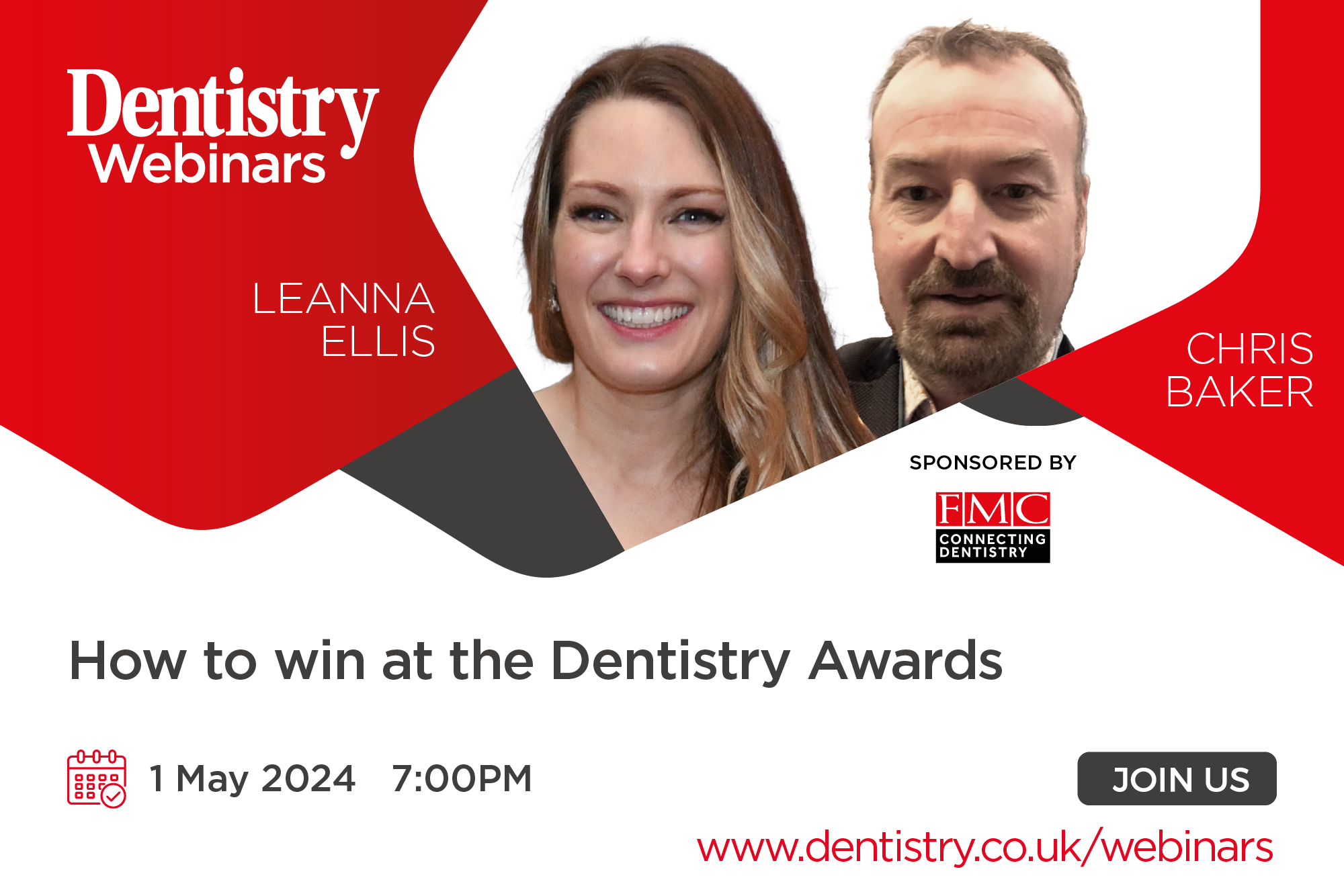 Claire Wigley discusses why it’s so important for dental teams to keep their medical emergency training up to date.
Claire Wigley discusses why it’s so important for dental teams to keep their medical emergency training up to date.
The pandemic has brought many challenges to all of us. And it has certainly changed the way dental practices are operating.
Following the enforced closures in 2020, practices have now re-opened under the new SOPs. This is resulting in teams having to adapt quickly to work within these guidelines.
Of course, this has required hard work from every member of the dental team to ensure compliance with the new operating procedures.
They have also had to adapt to a new way of working that includes wearing of additional PPE, changes to staff rotas and different shift patterns to observe social distancing and shielding.
In addition, many dental practices have seen existing team members leave the profession. Therefore, they are having to recruit new staff. All in all, there’s a lot to contend with!
Medical emergency training
With all these changes to the day-to-day working routine, this could all lead to confusion around training and ensuring that everyone is up to date on various aspects.
One particular area is medical emergencies. Changes in the team, new recruits or extending roles to allow existing team members to take on more responsibility could mean this vital training is not up to scratch.
While medical emergencies in a dental practice are a rare occurrence, they can happen.
A patient could collapse at any time. Whether they have received treatment with you or not. Is your team ready to deal with a true medical emergency during the pandemic?
If sufficient training is not provided, your dental teams may not be able to respond effectively and safely to a medical emergency.
Not only could this have a devastating effect, it also leaves you with a big compliance gap that needs addressing.
Check your files
The first thing to do is to check each staff member’s personnel file to see whether their training is up to date.
The CQC and GDC state that providers and individual dental professionals should continue to make every effort to complete accredited basic life support and immediate life support training annually. In line with the Resus Council’s Quality Standards: Primary Dental Care.
Basic life support training is still happening throughout the UK. But at times this has proven challenging to obtain from external trainers.
If training is unavailable due to current restrictions, you must make appropriate alternative provision.
How to get training
Various methods to acquire, maintain and assess resuscitation skills and knowledge can be used for updates.
Life support courses, team-based scenario training in the clinical environment, ‘rolling refreshers’, e-learning, video-based training/self-instruction are some suitable interim measures until face-to-face, hands-on simulation training and assessment can be safely arranged.
We have contacted Resuscitation Council UK (Resus Council) to clarify whether it is a requirement for trainers to attend for in-practice sessions or whether this can be done remotely via Zoom. The Resus Council have confirmed that: ‘A number of other methods have been employed successfully that involve little or no instructor involvement. A well designed and validated self-instructional programme using DVD or e-learning is an effective alternative to instructor-led training. It is essential that this method includes hands-on practice as part of the programme.’
Team-based training
Team-based scenario training in the clinical environment aligns the online training with the everyday situation. It gives your team the chance to test their knowledge and build teamwork. As well as highlight potential pitfalls that occur due to your individual surroundings.
Discussing the outcome of the scenario and agreeing on solutions to streamline the effectiveness of the team’s handling of the medical emergency is important to ensure that every employee is on board. This also gives your team members the chance to discuss any worries they may have.
Top tip
It is wise to complete the scenario in full PPE. This way you can experience the potential restriction that wearing these may bring. You may find you are unable to able to communicate effectively to team members. So make alternative provisions.
CPR and COVID
It is understandable for you or your team members to have concerns about CPR during the pandemic. This is yet another reason why it is important to assess your medical emergency training at the moment.
During CPR, there is a potential contamination risk as chest compressions or ventilation can generate infectious droplets. The Resus Council states: ‘Individual healthcare organisations should carry out local risk assessments, based on the latest guidance from RCUK/DHSC/PHE regarding PPE for HCWs to develop local guidance.’
We would suggest carrying out a risk assessment. This way you can discover areas in your emergency approach that need bolstering with additional training, PPE and other safety measures. This can protect both the patient and your team.
Summary
If team members have the knowledge, training, and confidence in dealing with a medical emergency during the pandemic it gives patients the best chance of survival.
You must complete medical emergency training annually. This ensures you are up to date. The CQC and GDC state that you should make every effort to do this. Even under the pandemic restrictions.
However, it is important to ensure both your patients and dental team is also kept safe with regards to COVID if a medical emergency does occur. So carrying out a risk assessment and making necessary adjustments is also highly advisable.
We are working tirelessly to provide you with the most up-to-date guidance. As well as support and resources to help manage your practice through this crisis.
As well as bringing you the latest news from all of the essential, reliable industry sources, we are also running regular free webinars including Q&A sessions and workshops to help answer your questions and plan your way forward.
Visit our COVID support page: https://bit.ly/3j0ESrI.



